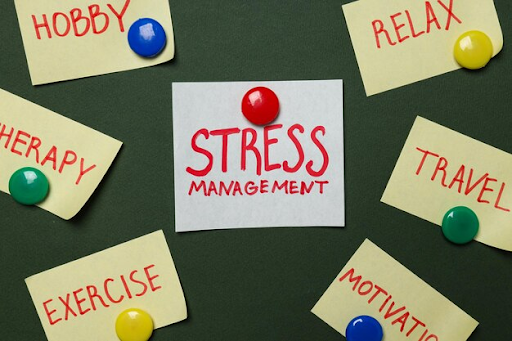Medical debt is a financial burden that affects millions of Americans, creating a ripple effect that extends far beyond their bank accounts. One of the most profound consequences of medical debt is its impact on mental health. On the flip side, poor mental health can exacerbate financial challenges, leading to a vicious cycle that’s hard to escape. Understanding the relationship between mental health and medical debt is crucial for breaking this cycle and providing solutions that benefit individuals and communities alike.
How Medical Debt Affects Mental Health
Medical debt is often overwhelming. Studies show that individuals struggling with unpaid medical bills are significantly more likely to experience anxiety, depression, and even symptoms of post-traumatic stress disorder (PTSD). Here’s how:
- Stress and Anxiety: Constantly worrying about mounting medical bills and harassing calls from debt collectors can trigger chronic stress. This ongoing stress affects physical and mental health, leading to sleep disturbances, irritability, and trouble concentrating.
- Depression: Many individuals with medical debt feel hopeless, trapped, or ashamed of their financial situation. The stigma surrounding unpaid bills can worsen feelings of isolation and helplessness, which are common signs of depression.
- Social and Emotional Impact: Medical debt can force people to make difficult choices, such as cutting back on essential expenses like groceries or skipping family outings. The resulting strain on relationships and lack of social support can further harm mental health.
- Suicidal Thoughts: In extreme cases, individuals overwhelmed by medical debt may develop suicidal thoughts. A 2021 study revealed that people facing significant financial hardship due to medical expenses are more likely to experience severe mental health crises.
How Mental Health Issues Worsen Medical Debt
While medical debt can damage mental health, the relationship works in reverse as well. Poor mental health often exacerbates financial problems, creating a harmful feedback loop.
- Barriers to Employment: Mental health conditions like anxiety or depression can make it difficult to maintain steady employment or pursue higher-paying opportunities. This lack of income worsens financial instability and makes paying off medical debt even harder.
- Delayed Healthcare: People with mental health struggles may avoid seeking treatment for physical ailments due to financial concerns or lack of energy to navigate healthcare systems. Delayed care can lead to more serious (and expensive) health conditions, increasing medical bills over time.
- Difficulty Managing Finances: Mental health conditions, especially those involving cognitive impairments like ADHD or bipolar disorder, can make budgeting and debt management more challenging. Missed payments or failure to negotiate with creditors can compound financial woes.
- Prescription Costs: For individuals with mental health conditions, medication is often essential for managing their symptoms. However, the high cost of prescription drugs can push people further into debt, creating an ongoing financial burden.
Breaking the Cycle: Solutions and Support
Breaking the cycle of medical debt and mental health struggles requires a multifaceted approach that addresses both issues simultaneously. Here are some strategies to help individuals regain control of their finances and mental well-being:
- Seek Financial Assistance Programs: Many hospitals and clinics offer financial assistance or payment plans for patients struggling with medical bills. Researching these options can provide immediate relief.
- Utilize Prescription Discount Cards: Prescription costs can contribute significantly to medical debt, especially for individuals requiring long-term medication. Prescription discount cards, such as BuzzRx, can help reduce the financial strain. BuzzRx works with pharmacies nationwide to offer discounts on a wide range of medications, making it easier for individuals to afford the prescriptions they need without sinking deeper into debt.
- Access Mental Health Resources: Therapy, counseling, or support groups can help individuals cope with the emotional toll of medical debt. Free or low-cost mental health services are available through nonprofits, community centers, and telehealth platforms.
- Advocate for Policy Change: Addressing the root causes of medical debt—such as high healthcare costs and inadequate insurance coverage—requires systemic change. Advocacy for healthcare reform can help reduce the burden on future generations.
- Educate Yourself on Financial Literacy: Learning about budgeting, debt consolidation, and credit repair can empower individuals to make informed decisions about their finances. Resources like nonprofit credit counseling services can provide guidance tailored to personal situations.
The Role of Community and Employers
Employers and communities can play a vital role in breaking the cycle of medical debt and poor mental health. Employers can offer mental health benefits, financial wellness programs, and access to affordable healthcare plans. Meanwhile, community organizations can provide support networks and educational resources to help individuals navigate their financial and emotional challenges.
Conclusion
The interplay between mental health and medical debt is complex and deeply intertwined. Medical debt can devastate mental well-being, while poor mental health can make it harder to overcome financial hardships. Addressing this cycle requires not only individual effort but also systemic support from employers, healthcare providers, and policymakers.
Tools like BuzzRx prescription discount cards can ease the financial burden of essential medications, while mental health resources and financial education can provide individuals with the tools they need to regain stability. By recognizing the interconnected nature of these challenges, society can work toward solutions that promote both mental and financial health for all.


